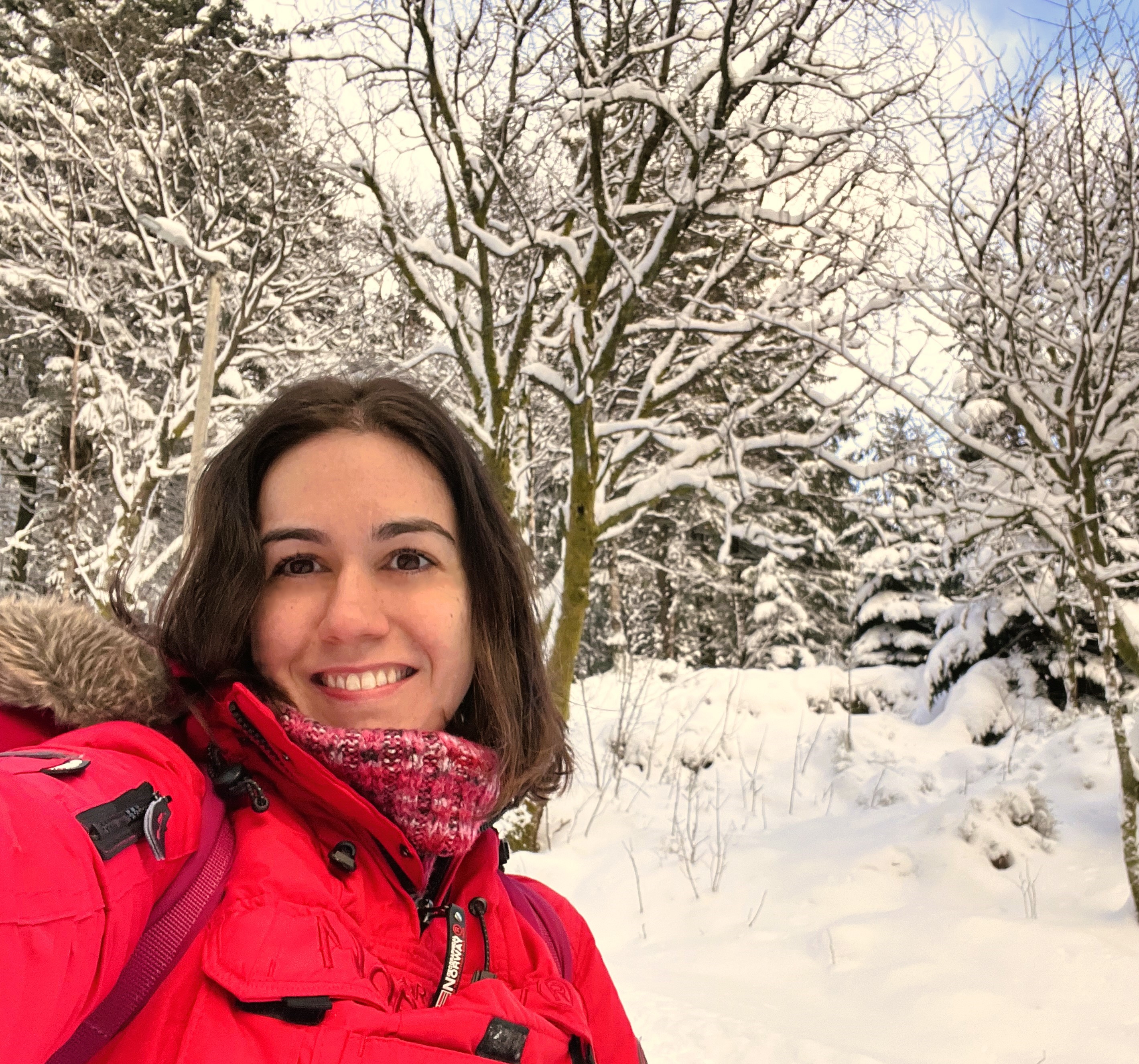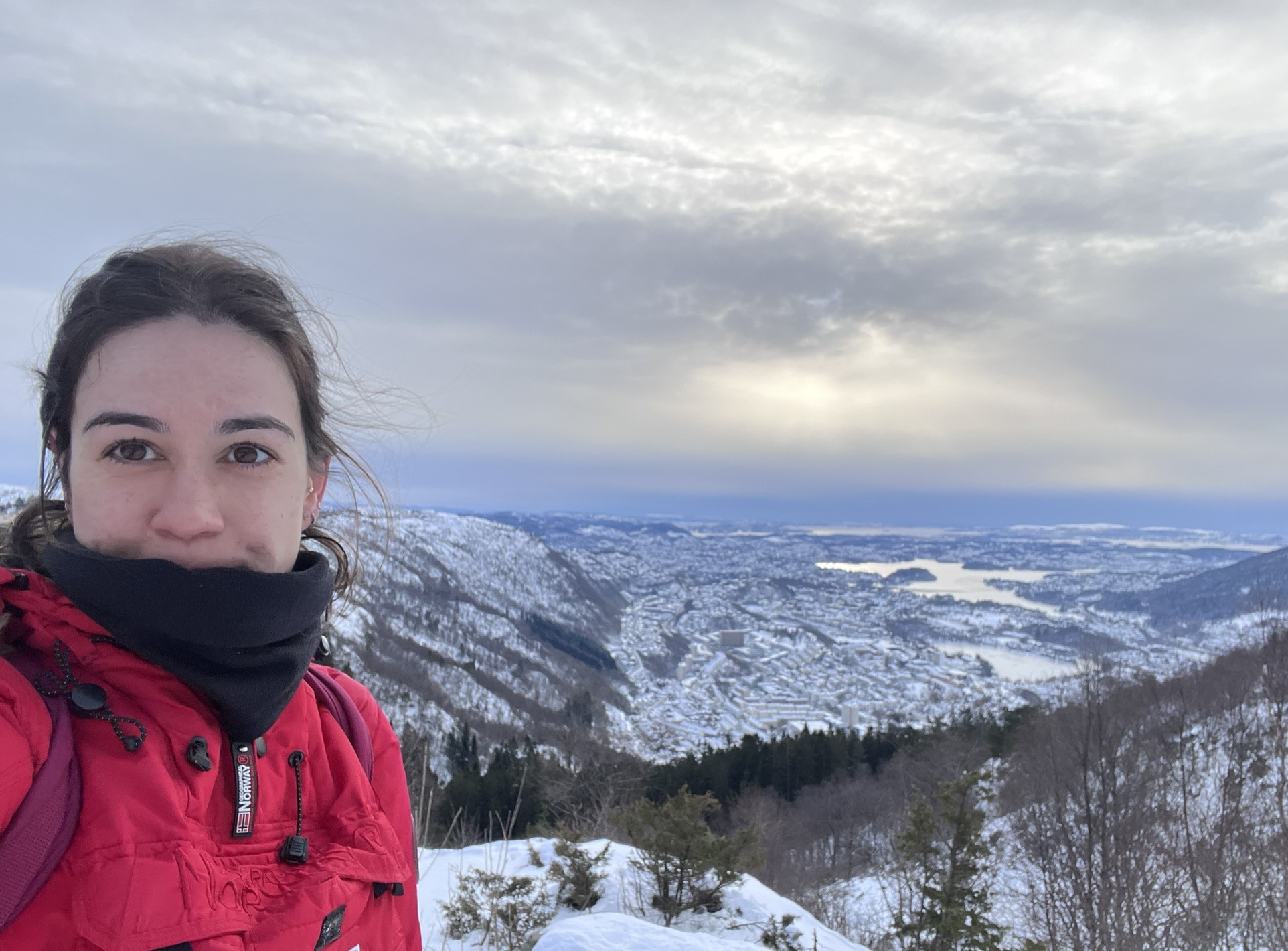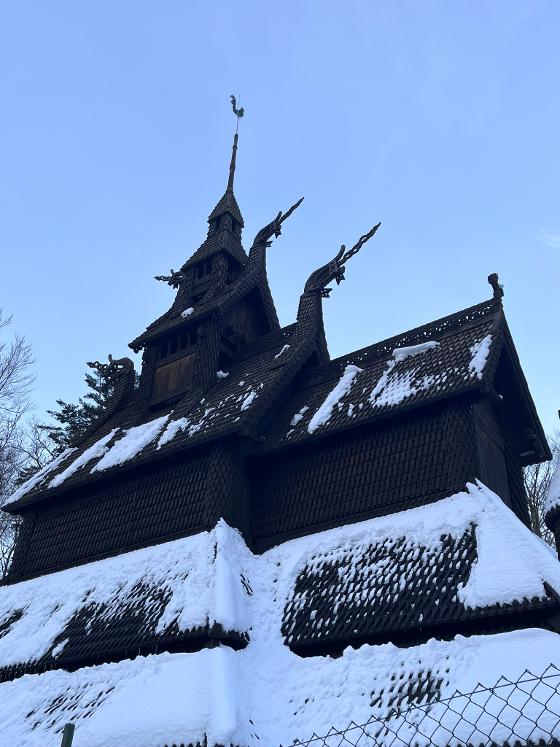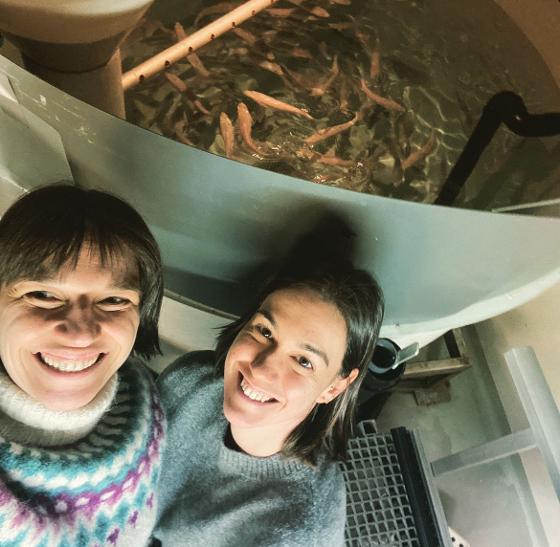First weeks in Bergen for María
Hola! My name is María Fernández and I come from Vigo, a city located in the north of Spain and famous for its fishing industry. I just started as a postdoctoral researcher in the Environmental Toxicology group (University of Bergen), as a part of the ToxiGen project.

I always knew I wanted to do research and know more about the behaviour of living animals. My research career began as a collaborating student during my BSc in Biology at the University of Santiago de Compostela (Spain). I had the opportunity to work on the taxonomy of snails and slugs involving animal sampling and photography in natural parks.
My MSc in Aquaculture gave me the opportunity to collaborate with the University of Vigo (Spain) in the study of different species of hake for commercial traceability and stock exploitation. This work formed the beginning of my doctoral thesis at the University of Vigo and in collaboration with the Spanish Institute of Oceanography (IEO-CSIC) on the application of molecular tools to improve the management of European hake populations and the cultivation of Atlantic cod. During my PhD, I conducted a training stay of three months at Nofima (Tromsø), which gave the resources to analyse the genetic factors that influence cod egg quality. I complemented my scientific career with university teaching and scientific dissemination, since for me it is essential to work with students and transmit my passion.



